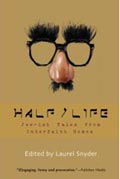Matthew cites my post yesterday noting that record sales have actually risen in the past year, and then goes on to explain that, in his view, even this argument concedes too much to the content industry.
I'm inclined to agree, but before I do, here's a little more on how the RIAA calculates losses, very interesting. Upshot: Nobody really knows. More accurate upshot: The RIAA is being deliberately deceptive.
There is only one logical integration of all these statistics with the recent Soundscan data: even though actual point-of-purchase sales are up by about 9% in the US - and the industry sold over 13,000,000 more units in 2004 (1st quarter) than in 2003 (1st quarter) - the Industry is still claiming a loss of 7% because RIAA members shipped 7% fewer records than in 2003.
Forget the confusing percentages, here's an oversimplified example: I shipped 1000 units last year and sold 700 of them. This year I sold 770 units but shipped only 930 units. I shipped 10% less units this year. And this is what the RIAA wants the public to accept as "a loss."
Kensei-news.com
But back to me agreeing with Yglesias. Here I go.
Protecting intellectual property is not a proper goal of intellectual property law. Rather, Article I, Section 8, Clause 8 of the Constitution gives the congress the power "To promote the Progress of Science and useful Arts, by securing for limited Times to Authors and Inventors the exclusive Right to their respective Writings and Discoveries." Protecting innovation is the only legitimate goal of intellectual property law. What needs to be balanced here is the promotion of musical innovation versus the promotion of innovation in the fields of data storage, duplication, transfer, and access.
Matthew Yglesias
And then this..
If the music is getting made, and the music is getting listened to, well then, that's a healthy IP environment. The creation and consumption of new works is the end, sales are merely a means to that end.
Matthew Yglesias
Exactly. Somehow the notion that intellectual property laws are designed to protect profits and guarantee that content creators can muscle everyone else has become the dominant understanding, but it just ain't so. It's the wrong approach to analyze the impact on sales, not only because that impact is nearly impossible to accurately measure, but because it's not the right test. The "progress of science and useful arts" is not threatened.
Here's an oversimplified [and wrong] example: I shipped 1000 units last year and sold 700 of them. This year I sold 770 units but shipped only 930 units. I shipped 10% [wrong, 7%] less [they mean 'fewer'] units this year. And this is what the RIAA wants the public to accept as "a loss."
* The oversimplified example represents a decline of 7% in shipments alongside a 10% increase in sales.
* For countable nouns ('units' here), 'fewer' is preferred to 'less,' a term for which correct usage is illustrated by the phrase "Hey, less pedandtry please!"
[/pedantry]

